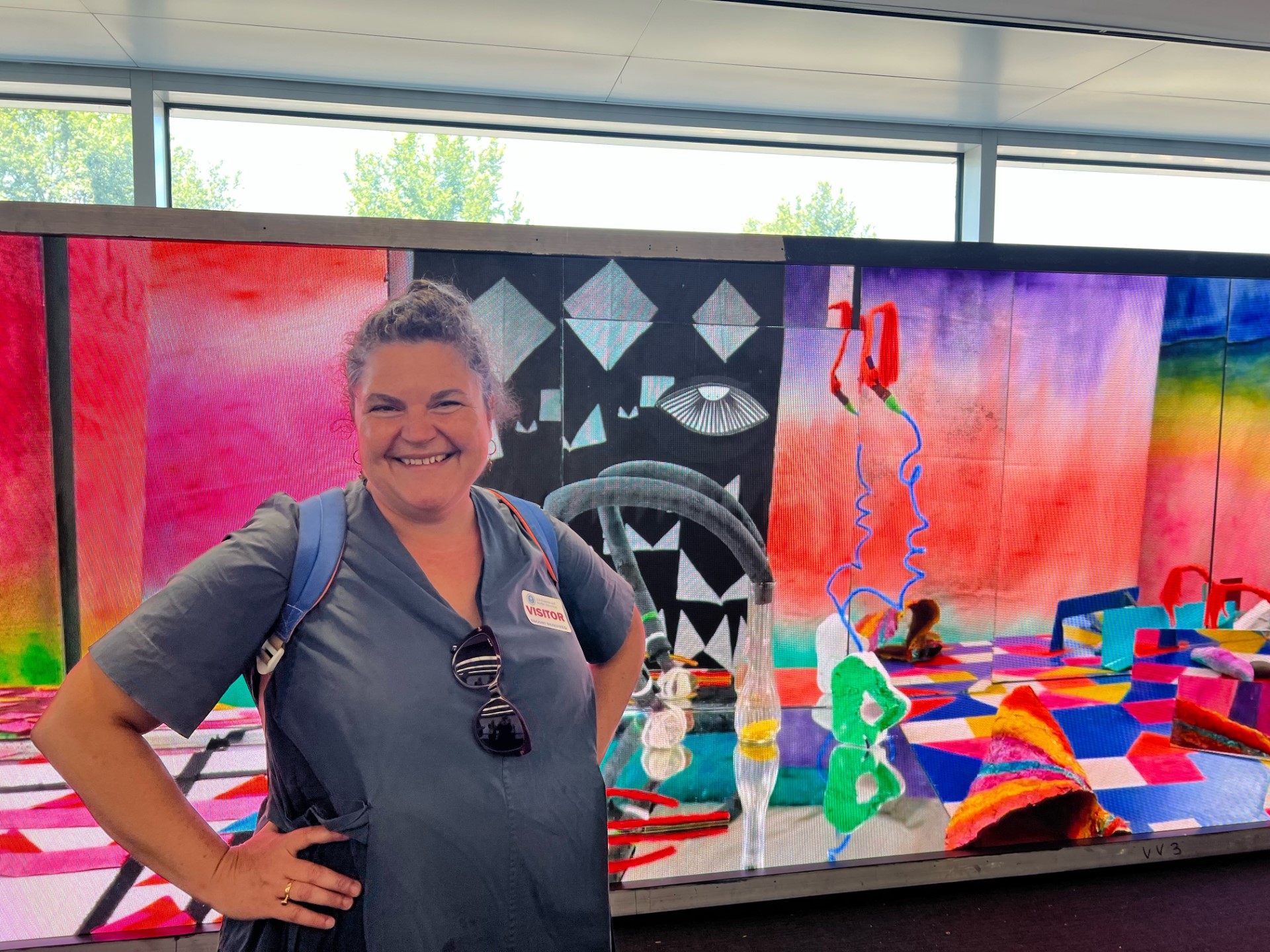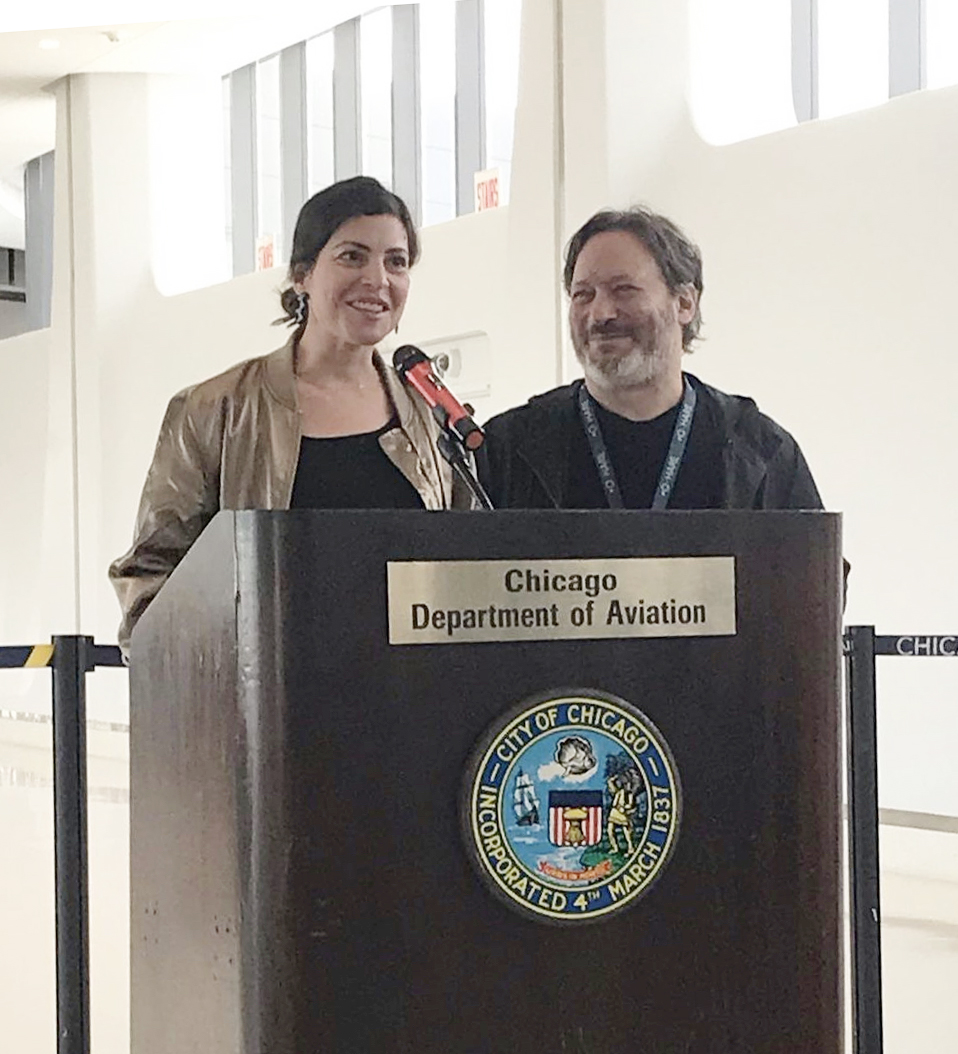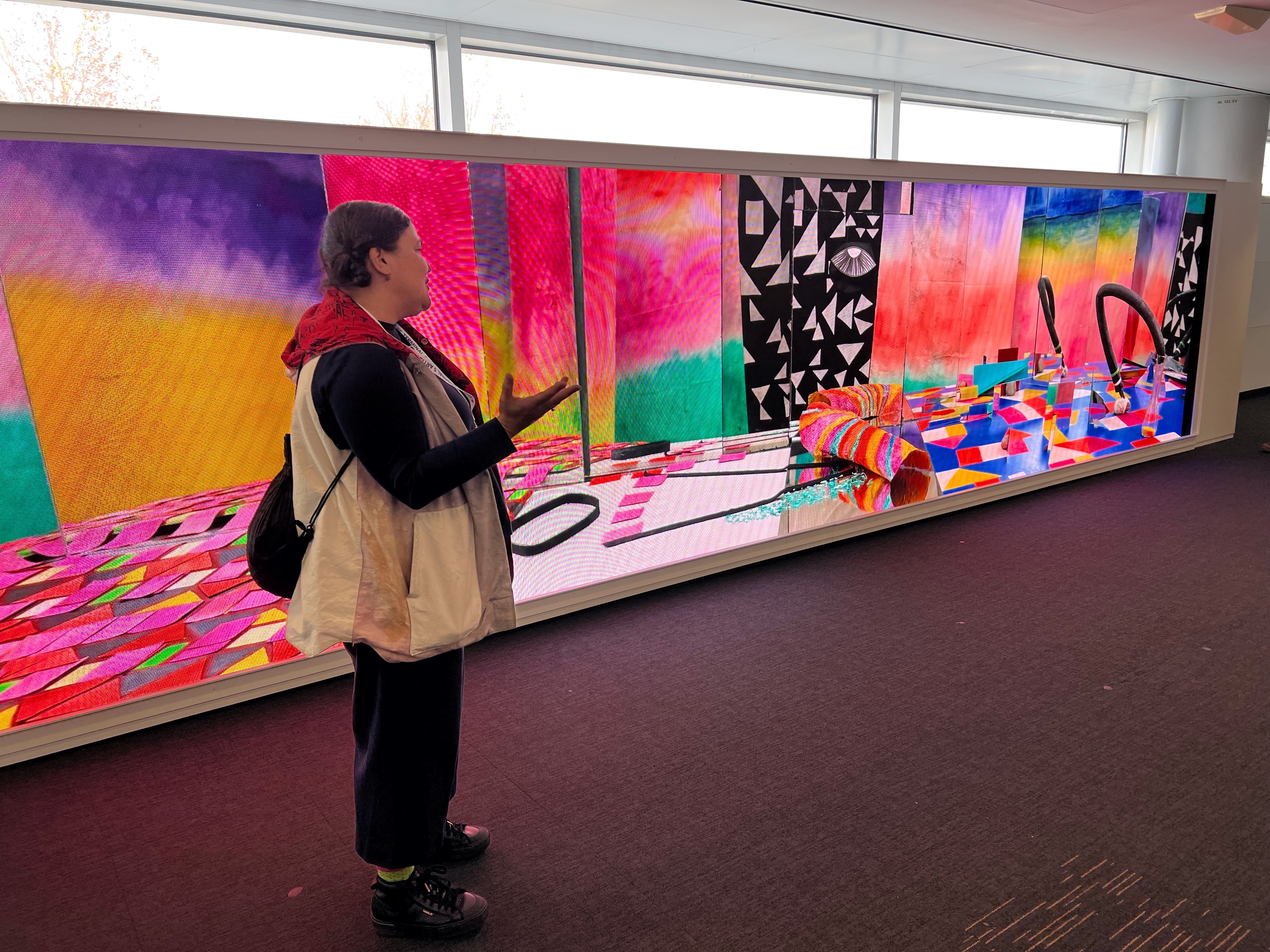 Animator and adjunct faculty member Selina Trepp in front of her animation installed in Terminal 5 of O'Hare International Airport (Photo courtesy of Selina Trepp)
Animator and adjunct faculty member Selina Trepp in front of her animation installed in Terminal 5 of O'Hare International Airport (Photo courtesy of Selina Trepp)When finally landing at O’Hare after a long international flight, a long corridor awaits visitors leading to the monotony of customs. Rather than the cold, plain walls typically found in an airport, the hallway is now filled with a series of stunning art pieces representing the City of Chicago.
This fall, O’Hare International Airport debuted its public art project in the newly renovated Terminal 5 featuring a diverse selection of 20 artists, including animator
Selina Trepp, an adjunct faculty member in the Jarvis College of Computing and Digital Media. The project was spearheaded by Ionit Behar, curator of the
DePaul Art Museum, and architect Andrew Schachman, who worked closely to choose artists and commission work that would fit perfectly in the unconventional space.
The project is already receiving high praise, as Chicago Tribune's art critic Lori Waxman calls it "one of the most sensational art exhibitions currently on view in Chicago."
 Ionit Behar and Andrew Schachman speak at an event celebrating the opening of the project at O'Hare International Airport. (Image courtesy of Ionit Behar)
Ionit Behar and Andrew Schachman speak at an event celebrating the opening of the project at O'Hare International Airport. (Image courtesy of Ionit Behar)“The work I do at the museum is not only within the walls of the museum. A big part of what I do is being out in the city, meeting with artists and growing an interconnected community,” Behar says. “Many of the artists included at the airport also work with the museum or are part of the collection. This project is a different capacity, but they are very much connected.”
Since the hallways are so large and people continuously move through them, each artist was given a large space to create a world of their own. “Working with the artists, we had to be mindful that the work was easy to grasp and aesthetically pleasant,” says Behar. “We also took great care to select a group of artists who would represent Chicago and its diversity.”
Trepp adapted to the space by creating an animation that moved along with the travelers towards their destination. “The unconventional space the work is installed in did affect my thinking about how the viewership would interact with it,” Trepp says. “If someone in the corridor experiences at least one or two of my characters walking with them, there is the possibility of a full experience even in this brief interaction.”
Working for over a year on her animation for this project, Trepp aimed to make a piece that would make the arrival process easier by mirroring the passengers’ experience with bright colors and funny characters.
 Selina Trepp speaks to reporters during a media day debuting the art at O'Hare. (Image courtesy of Selina Trepp)
Selina Trepp speaks to reporters during a media day debuting the art at O'Hare. (Image courtesy of Selina Trepp)“I know the feeling of getting off a long international plane and then still needing to get through customs and wait for luggage,” Trepp says. “I hope those walking by smile when they see the art, that it wakes them up, puts them in a good mood, and reminds them that we are all walking together on this planet, all in our own beautiful idiosyncratic ways.”
This installation is one example of how art can enhance even the most mundane parts of life, while creating community and uplifting artists around the city. Read more at
Fly Chicago.
Jade Walker is a student assistant of media relations and communications in University Communications.